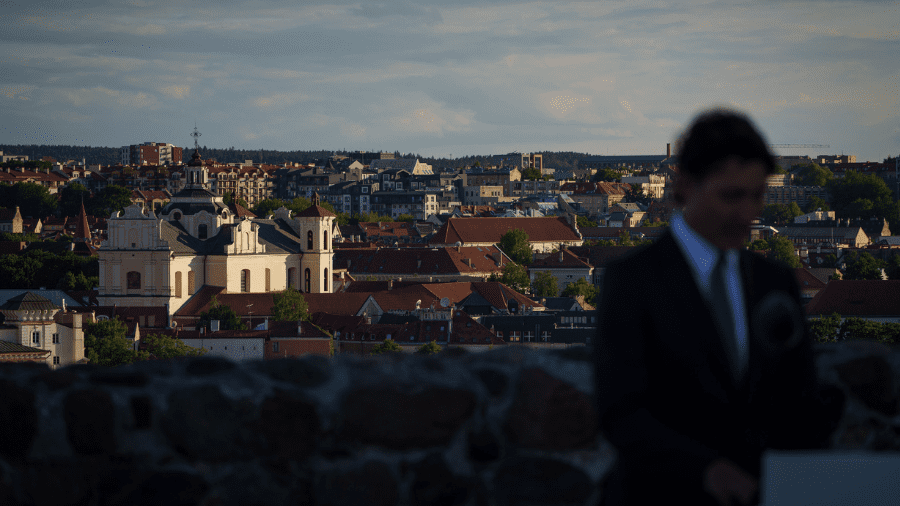This article originally appeared in the Globe and Mail.
By Charles Burton, October 30, 2023
Speaking to an international crowd of leaders, ministers and other representatives who had gathered earlier this month in Beijing for a forum that marked 10 years of China’s Belt and Road Initiative global infrastructure program, Chinese leader Xi Jinping declared that “changes of the world, of our times, and of historical significance are unfolding like never before.”
Quite right. Will the Russian invasion of Ukraine be resolved without war with NATO? Will armed conflict in the Middle East, fomented by Iran, spiral into a regional war? Would China open a third front by invading Taiwan? If the atrocious provocations to war by Iran, Russia and China develop simultaneously on three fronts – setting off a world war in Asia, the Middle East and Indo-Pacific – where will Canada stand?
Canada should be a respected and resonant voice in the international arena. We are both an Atlantic and a Pacific nation, and our heralded history of peacekeeping involvement in the Middle East dates back to the Suez Crisis of the 1950s and Lester Pearson’s Nobel Prize. In the Second World War, prime minister William Lyon Mackenzie King sat down for four power meetings with Franklin Delano Roosevelt, Winston Churchill and Joseph Stalin.
Canada once mattered. But those days are long gone.
Years of underfunding defence and freeloading on the U.S. for our national security are leading to Canada being phased out. The significance of the Group of Seven and the Five Eyes intelligence alliance has become equalled or overtaken by that of organizations from which Canada is excluded, such as the Quint and AUKUS, which is aimed at Indo-Pacific security even though Britain is not a Pacific nation. Despite reportedly telling Western leaders and officials at the G20 summit that it had credible intelligence that India’s government was involved in the assassination of a Canadian citizen, no leader was willing to publicly criticize Narendra Modi. Our soft power authority has faded.
Given our pathetically depleted hard power capabilities, Canada needs a reality check on what we can actually do with the limited resources at our disposal.
First of all, it is time to stop mouthing hollow bromides about “our” north, and actually reorient our defence to establish a meaningful presence in the Arctic. China now defines itself as a “near-Arctic nation,” with increased investment in the region and plans around a potential shipping route – a “polar silk road” – that could emerge between melting ice caps; Russia, meanwhile, has argued that much of Canada’s Arctic waters actually belongs to them. If a major conflict were to arise with Russia and China allied against the U.S. and Canada, our unprotected Arctic could be quickly lost to Beijing and Moscow’s ambitions to expand their territory beyond Europe and East Asia.
Secondly, Canada must protect its northern stores of critical minerals. We talk a good game on this, but so far that has mostly been political bafflegab. Beyond making an obvious statement about our sovereignty, developing our northern resources is a productive way to create economic opportunities for northern Indigenous communities, and shows our allies that we are serious about stopping China from monopolizing valuable minerals in Canadian soil that are vital to the world’s high-tech future.
Finally, Ottawa needs to step up and meet the challenge to Canada’s security from Iran, Russia and China. There was tough talk in Parliament earlier this year about foreign actors manipulating our democratic institutions, but there has yet to be legislation tabled to create so much as a foreign agent registry. The federal government’s response to the 34 well-considered recommendations of a House of Commons special committee on Canada-China relations released in May was dismissive.
Even the Commons subcommittee on international human rights’ report on Tibetan residential schools in China was effectively ignored. One would have thought this issue would be something Canada could take a lead on, considering our history in this area. But in responding to the report, Foreign Affairs Minister Mélanie Joly didn’t even acknowledge the recommendation that Canada sanction Chinese Communist officials complicit in their residential schools policy.
What is the point of investing considerable resources into parliamentary committees if the government sees them only as an irritant to be checked, rather than a positive contributor to national policy development?
We are facing an axis of cold-blooded dictators determined to destroy Western-supported stability and order. With global tensions more combustible than at any time in a generation or more, Ottawa’s vexing indifference toward national defence and security will not serve or protect Canada.
We need to refocus what remains of our military and security resources to what really matters, and fast.
Charles Burton is a senior fellow at the Macdonald-Laurier Institute, non-resident senior fellow of the European Values Center for Security Policy in Prague, and former diplomat at Canada’s embassy in Beijing.






